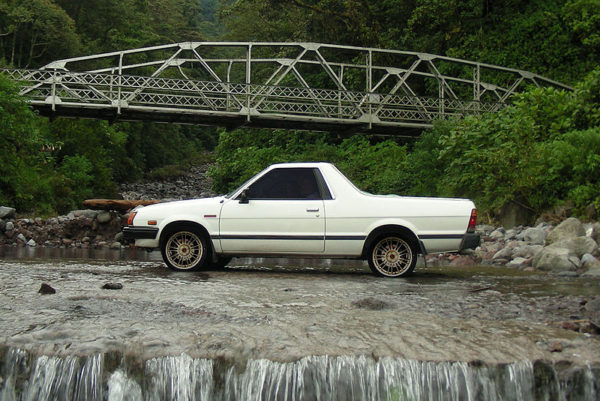
It sure did. A German tax on imported chicken from the 1960s is still affecting where and how trucks are built and what trucks are available in the US – even though the original German tax has expired! International trade is complex and the results can be strange. Cheap chicken in the ‘60s is the reason you can’t get a Ford Ranger in the US today.
Why was there a Tax on Chicken in the ’60s?
Following World War II, US chicken farms became extremely productive, bringing down the price of chicken not only in the US, but in Europe. Cheap imported chicken led West Germans to eat 23% more chicken than before. That was great news for German chicken eaters and American chicken farmers, but bad news for German chicken farmers, who couldn’t produce chicken cheap enough to compete. In 1961, to keep German chicken farmers from going out of business, Germany imposed a tax on imported chicken. France, in a similar situation, followed suit.
The tariff became a point of contention between the US and Germany. German Prime Minister Konrad Adenauer later reported that most of his conversations with President Kennedy were about chicken.
At the same time German farmers were struggling with American chicken, US automakers were struggling with German trucks and vans. Specifically, the Volkswagen Type 2 (best known in its later hippie bus incarnation) was growing increasingly popular. At the time, the Type 2 was available as a cargo van or a pickup, as well as a passenger van. Chevy tried to compete by building pickups and vans based on the rear-engined Corvair, but the Volkswagen still proved more popular.
In 1963, President Johnson signed off on a 25% tariff on light cargo vehicles (pickups and cargo vans), and also on, brandy, potato starch, and dextrin (a type of sugar). Collectively these became known as “the Chicken Tax,” because they were deployed in response to Germany’s tax on chicken. The other taxes were eventually phased out, but the tax on trucks still stands as of this writing.
Unintended Effects of the Chicken Tax
Although the Chicken Tax was meant to keep out German trucks, by the ‘70s it was primarily affecting Japanese manufacturers. Companies like Datsun (which later became Nissan) and Mazda started trying to find ways to circumvent the tax. Since the tax was only applied to cargo vehicles, trucks shipped without pickup beds were exempt. Datsun and Mazda started to export flatbed trucks, which could then have pickup beds added Stateside.
When this loophole was closed, Subaru got even more creative. It shipped the Subaru Brat (pictured at the top of the page in all its glory) with two rear-facing seats in the bed. That made the Brat officially a passenger car and therefore exempt from the tax. Brat buyers could easily unbolt and remove the rear seats, and many did.
Eventually, companies like Nissan and Toyota decided that their best pickup strategy was to simply set up factories in the United States. Build the trucks here and there’s no need to import. Nissan and Toyota get to sell trucks in the US and US workers get jobs – more or less the kind of compromise these sorts of policies hope to achieve.
Ironically, US companies now have to use clever tactics to get some of their own products into the US. Ford, for example, builds the Transit Connect van in Spain and Turkey. To fill orders for cargo vans, Ford builds the Transit with rear seats overseas and removes the seats after the vans have passed through customs. In 2013, Customs forced Ford to start paying the tariff on these vans.
It might seem crazy, but building a new truck factory can cost billions of dollars and full-size pickups rule the road in the US. It isn’t worth it for US companies to build cargo vans or small pickups here. Companies like Ford still, by and large, support the Chicken Tax, because it protects domestic truck builders. Many US auto workers like it too. It helps to keep US manufacturers here, and lead Japanese manufacturers to establish factories in the US.
Cool Trucks You Can’t Get in the US Because of the Chicken Tax
If you’re a car enthusiast, there’s a major downside of the Chicken Tax that can’t be overlooked: all the cool trucks we can’t get in the US. Small trucks, an endangered species in the US, are still popular in South America, Africa, and Asia, where roads are narrower and gas mileage more important. These markets are dominated by Japanese brands like Toyota, Nissan, and Isuzu, but Ford is even in the game.
If you miss the Ford Ranger, you might be surprised to find out that Ford is still building it – in South Africa, Nigeria, Argentina, and Thailand. In 2013, the Ranger was the eighth most popular pickup in Africa and strangely enough, the bestselling pickup in the European Union.
The Land Cruiser 70 is an all-time classic. Toyota is still selling new ones in Australia, but not here in the US. Australians get another toy that makes us pretty jealous over here: the Holden Ute. The Ute is the spiritual successor to the El Camino, essentially a car with a pickup bed, that you can get with a V8 and a stick shift, but, again, not in the US.
The Chicken Tax Stays, for Now
International trade is constantly changing, and even though the Chicken Tax has been around for more than 50 years now it may not be around forever. Among its many other provisions, the Trans-Pacific Partnership (TPP) was set to phase out the Chicken Tax over the course of thirty years. That agreement eventually fell through, and for now, there are no signs of the Chicken Tax going away.